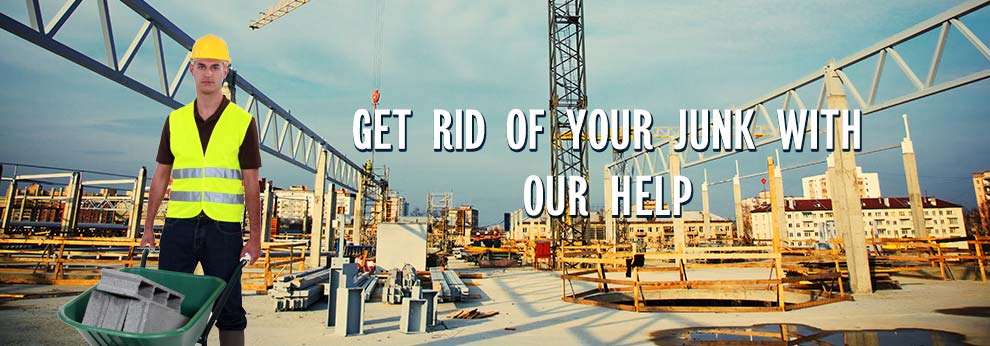Transforming London to Waste-Free Zone
Posted on 17/11/2024
Introduction
London, a vibrant metropolis, is known for its rich history and cultural diversity. Yet, like many major cities, it faces significant waste management challenges. With rising environmental concerns and the urgency of climate change, transforming London into a waste-free zone has never been more critical. This article explores the various strategies, methods, and efforts aimed at making London a zero-waste city.

Understanding Zero-Waste
The concept of "zero-waste" emphasizes waste prevention, responsible consumption, and reusing as much as possible. It involves redesigning our systems and lifestyles to ensure that all products are used to their fullest extent. This approach not only minimizes waste but also conserves resources and reduces environmental impact.
Current Waste Management Challenges in London
London generates over 18 million tonnes of waste annually. Despite recycling and composting efforts, a substantial portion still ends up in landfills or incinerators. The growing population and urbanization exacerbate waste management issues, making it imperative to adopt innovative solutions.
Strategies for Transforming London into a Waste-Free Zone
**1. Public Awareness and Education**
Educating the public about the importance of waste reduction is crucial. Campaigns, workshops, and school programs can help instill eco-friendly habits from an early age. Understanding the impact of waste on the environment encourages citizens to make more sustainable choices.
**2. Government Policies and Regulations**
Strong governmental policies are essential to drive the transformation towards zero waste. Implementing stricter regulations on single-use plastics, offering incentives for businesses adopting sustainable practices, and providing support for green technologies can significantly impact waste reduction.
**3. Improving Recycling Infrastructure**
Enhancing the recycling infrastructure is fundamental. Investing in advanced recycling facilities, creating more accessible recycling points, and simplifying recycling guidelines can encourage more people to participate.
**4. Promoting Circular Economy**
A circular economy focuses on creating a closed-loop system where products are designed for extended use, refurbishment, and recycling. Encouraging businesses to adopt this model can lead to significant reductions in waste generation.
**5. Supporting Community Initiatives**
Grassroots movements and community projects play an essential role in waste reduction. Supporting initiatives like local composting programs, repair cafes, and zero-waste shops can foster a community-driven approach to sustainability.
Technological Innovations
Emerging technologies can revolutionize waste management. Here are some innovative solutions:
- **Smart Waste Bins:** Equipped with sensors, these bins can monitor waste levels and optimize collection routes, reducing operational costs and carbon footprint.
- **Advanced Recycling Techniques:** Technologies such as chemical recycling and bio-recycling can handle complex materials that traditional methods can't process.
- **Waste-to-Energy Plants:** Converting waste into energy offers a dual benefit of reducing landfill use and generating renewable energy.
Pros and Cons of a Waste-Free London
**Pros:**
- **Environmental Benefits:** Reduced pollution and conservation of natural resources.
- **Economic Opportunities:** New jobs in recycling, composting, and green technologies.
- **Improved Public Health:** Less waste means fewer harmful emissions and contaminants.
- **Enhanced Aesthetic Appeal:** Cleaner streets and public spaces.
**Cons:**
- **Initial Costs:** Significant investment required for new infrastructure and technology.
- **Behavioral Change:** Adapting to new habits and practices can be challenging for the population.
- **Regulatory Challenges:** Implementing and enforcing new policies might face resistance.
Tips for Contributing to a Waste-Free London
- **Reduce Single-Use Items:** Opt for reusable bags, bottles, and containers.
- **Compost Organic Waste:** Set up a compost bin for kitchen scraps and yard waste.
- **Participate in Recycling Programs:** Familiarize yourself with local recycling guidelines and adhere to them.
- **Support Zero-Waste Businesses:** Patronize stores and brands that prioritize sustainability.
- **Educate Others:** Share knowledge and encourage friends and family to adopt waste-reducing habits.

Takeaways
Transforming London into a waste-free zone is an ambitious but achievable goal. It requires a multi-faceted approach involving public participation, government action, technological innovation, and community support. While challenges exist, the benefits far outweigh them, paving the way for a cleaner, healthier, and more sustainable city.
Conclusion
London is at a crossroads in its journey towards becoming a waste-free zone. The steps taken today will significantly impact the city's future environmental footprint. With concerted efforts from all sectors of society, London can lead the way in waste management and set a precedent for other cities worldwide. Embracing the zero-waste philosophy is not just about managing waste; it's about redefining sustainability for future generations.
Latest Posts
Transforming London to Waste-Free Zone
Top Party Venues to Check Out in Hounslow
Discover the Charm of Hounslow: A Suburban Gem in London





